#Filmcriticism
Link
The Pulitzer Prize, widely regarded as the pinnacle of achievement in American journalism and the arts, announced its 2024 winners and finalists on Monday at Columbia University. This prestigious award program recognizes exceptional contributions across various categories, from investigative reporting to groundbreaking music compositions. Here's a closer look at the 2024 ceremony's highlights. 2024 Pulitzer Prizes Justin Chang Wins Criticism Award for "Richly Evocative" Film Reviews The 2024 Pulitzer Prize for Criticism was awarded to Justin Chang, currently the film critic for The New Yorker. Chang's award recognizes his 2023 work published while he was a film critic at the Los Angeles Times. The Pulitzer Committee lauded his "varied and richly evocative" writing that reflects how American audiences engage with cinema today. Diverse Nominees Showcase Breadth of Film Criticism Other nominees in the criticism category further illustrate the diverse voices and approaches within film analysis. Zadie Smith, a renowned novelist and essayist, received a nomination for her New York Review of Books review of the 2022 film "Tar." Vinson Cunningham, The New Yorker's theater critic, was also nominated for his body of work in 2023, commended for his "formidable knowledge of the stage and the mechanics of performance along with canny observations on the human condition." Special Citation Honors the Legacy of Cultural Critic Greg Tate A special citation was awarded posthumously to the late Greg Tate, a cultural critic whose work with The Village Voice and Rolling Stone left a lasting impact. Marjorie Miller, administrator of the Pulitzer Prizes, praised Tate's unique language that blended elements of literature, academia, popular culture, and hip-hop. She further emphasized his influence on future generations of writers and critics, particularly those of color, highlighting the "aesthetic, innovations, and intellectual originality" that marked his pioneering hip-hop criticism. Unveiling the 2024 Journalism Award Winners Beyond the realm of film criticism, the Pulitzer Prizes honor excellence in a multitude of journalistic endeavors. Here's a breakdown of some key journalism awards: Breaking News Photography: Lookout Santa Cruz staff for their coverage of the devastating local effects of the January 2023 floods. Investigative Reporting: New York Times writer Hannah Dreier for her exposé on migrant child labor within the United States. Public Service: ProPublica for a series of investigative articles revealing connections between Supreme Court justices and wealthy donors. National Reporting: Reuters staff for investigative reporting on Elon Musk's ventures – SpaceX and Tesla. Artistic Achievements Recognized in Literature, History, and More The Pulitzer Prizes also encompass outstanding works of art, music, and literature. Here are some notable awardees in the arts categories: Fiction: Jayne Anne Phillips for her novel "Night Watch" History: Jacqueline Jones for her book "No Right to an Honest Living: The Struggles of Boston's Black Workers in the Civil War Era" Biography: Joint award to Jonathan Eig for "King: A Life" and Ilyon Woo for "Master-Slave Husband Wife: An Epic Journey From Slavery to Freedom" Drama: Eboni Booth for her play "Primary Trust" Music: Tyshawn Sorey for his musical composition "Adagio (For Wadada Leo Smith)"
#2024PulitzerPrizes#biography#drama#elonmusk#filmcriticism#GregTate#investigativereporting#JacquelineJones#JayneAnnePhillips#JustinChang#migrantchildlabor#musicaward#PulitzerPrizes2024
0 notes
Text
A Surreal Journey Through Life and Liberation: "Poor Things" Reviewed
Yorgos Lanthimos’ “Poor Things” is a cinematic labyrinth that beckons us into the world of Bella (Emma Stone), a modern-day Frankenstein’s creation. Lanthimos, known for “The Killing of a Sacred Deer,” crafts another surreal narrative that leaves a lasting impression with its bold storytelling and philosophical depth.
Bella’s journey begins with her resurrection by Dr. Godwin (Willem Defoe), a…

View On WordPress
#ArtisticFilmmaking#CinematicAnalysis#Cinematography#ContemporaryCinema#EmmaStone#FilmCriticism#FilmDiscussion#FrankensteinRetelling#IndependentFilm#MovieReview#PhilosophicalFilm#PoorThings#SurrealCinema#VisualStorytelling#YorgosLanthimos
1 note
·
View note
Text
Analysis of: "If I Ran Marvel..." entertainment commentary/criticism by Dan Murrell
youtube
In the following text the term "document" refers to the subtitles of the video.
Summary of the discussion:
The genre of the document is entertainment commentary/criticism based on its informal, analytical tone and focus on the MCU.
It demonstrates strong knowledge of its subject matter and presents its critique in an engaging, well-structured manner.
The perspective presented is an idealistic, constructive vision from a passionate fan's perspective.
Some arguments could be strengthened by addressing counterarguments and alternative views more directly.
Implementing the proposals may benefit fans and creative talent most but risks short-term financial impacts.
Strategies like enforced rewatching or divorcing business from creativity have limitations and risks.
Moderate, balanced approaches that consider stakeholders and complexity may have higher chances of success.
The author's personality seems to be that of an creative, enthusiastic visionary focused on improvements.
Overall evaluations found reasoned arguments but also opportunities to qualify statements, address challenges, and strengthen logical reasoning and evidence.
Here is a summary of the document in bullet points:
The speaker is pretending to be Kevin Feige, head of Marvel Studios, and discussing what they would do if they were put in charge of Marvel
They would stop all current production except for projects already in late stages, and re-evaluate planned projects
Everyone at Marvel would rewatch all previous MCU movies to analyze what worked and didn't work
Future projects would go back to focusing on individual heroes and their stories before setting up larger crossovers
All ideas would be eligible for exploration without being ruled out due to past failures or other factors
Creative decisions would not be based on marketing or financial factors like release dates
Major characters like the Avengers would be given a break from team-up movies
New focus would be on rebooting properties like Fantastic Four, X-Men, and Spider-Man
The multiverse concept introduced in movies would be fully leveraged through one-off crossover projects
Budgets would match projects' actual needs rather than being excessively large by default
Reshoots would only be used to improve existing projects, not rewrite entire scripts late in production
Future plans would slowly be hinted at without being rigidly locked in
No more than 3 movies and 3 Disney+ shows would be released per year to avoid oversaturation
Based on the content and style of the document, I would classify its genre as entertainment commentary/criticism.
Some evidence that supports this:
The speaker is providing their perspective and commentary on Marvel Studios and the MCU, criticizing some past direction and offering suggested changes.
It has an informal and conversational tone, but analyzes creative decisions and business strategies in detail like a film critique might.
It references specific movies, shows, characters and storylines from the MCU to support points, demonstrating knowledge of the material being discussed.
The purpose seems to be entertainment and starting a discussion about Marvel, rather than strictly informative like a work of journalism might be.
It is posted on a YouTube channel focused on movie reviews and commentary, suggesting this genre of entertainment commentary.
The style is presenting an imagined scenario ("What if I ran Marvel?") which invites critique and debate, rather than stating facts.
So in summary, while it touches on business and creative aspects, the primary genre is entertainment commentary/criticism - evaluating and opining on a popular media franchise from the perspective of a knowledgeable fan. The target audience seems to be other passionate MCU fans.
Based on the information and perspective presented in the document, here is an evaluation of the situation of the MCU:
Both critical and commercial success appear to be declining based on specific films and shows cited as disappointments. Data supports box office declines.
Fan enthusiasm may be drifting as well, supported by need to "rekindle passion" and make properties essential viewing again.
Overly relying on crossovers and large-scale team up movies risks repetition and dilution of character/story importance.
Quantity over quality with high output may be saturating the market and lowering demand. Movie theater struggles support this view.
Lack of strong singular hero/property focus risks characters becoming generic cogs in a machine vs compelling individuals.
Reshoot-heavy production implies some planning/writing flaws as creative process extends into costly post-production.
However, some high points still exist like Spiderman:NWH suggesting market potential remains if executed correctly.
Overall, while still a lucrative franchise, credible evidence suggests the MCU is facing serious challenges to sustained quality, audience appetite and cultural relevance if course is not corrected. The diagnosis seems a reasonably accurate portrayal of real issues potentially facing the shared universe model long term.
Here are some of the key stakeholders that could be affected by the proposals in this document and an evaluation of the impacts:
Marvel/Disney executives - Major changes proposed could impact business strategy and planning. Both risks and rewards discussed if creativity/quality improve.
MCU creative team (writers, directors, producers) - Freer creativity suggested but also pressure to meet loftier goals. Potential for burnout with tighter limits and "rewatch week".
MCU actors - Less steady work opportunities with fewer projects in production at once. But potentially more beloved/compelling roles.
Movie theater chains - Potential upside if proposed changes boost box office. But risks with fewer guaranteed tentpoles spread evenly year-round.
Marvel fans - Clear prioritization of fan experience/satisfaction. Proposals aim to rekindle passion and demand for future projects.
General moviegoing public - Broader relevance depends on commercial success of proposed changes appealing beyond hardcore fans.
Disney+ subscribers - Suggested emphasis on quality over quantity for streaming shows impacts service value proposition.
Overall, while challenging stakeholders like executives, the proposals generally seem aimed at prioritizing the sustainment of creative talent/passion and enhancing theater and audience experiences long-term. However, precise impacts would depend greatly on execution of ambitious vision discussed. Risks and rewards seem reasonably balanced across parties.
Here is an evaluation of the idea of everyone at Marvel rewatching all previous MCU movies:
Potential benefits:
Provides a holistic perspective on the entire narrative across films/shows that individual projects may lack in isolation.
Allows identification of broader tonal, character, and storytelling trends across the universe at a macro-level.
Encourages collaborative analysis and discussion that incorporates varied roles/viewpoints within the company.
May surface insights not apparent from single viewings or strictly relying on past analyses/reviews.
Potential limitations:
Time intensive process that could hamper ongoing work for creatives and executives with full schedules.
Subjective interpretations may vary significantly between individuals affecting consensus.
Earlier films may appear dated and be reevaluated through a modern lens rather than context of release.
Difficult to systematically catalog learnings in an actionable creative brief from such a marathon.
Risks of fatigue, diminishing returns on later rewatches in a binge format.
Overall, a rewatch endeavor could yield some dividends but may be challenging to implement effectively across a large company in a tangible way that directly guides future plans. A more targeted, facilitated analysis amongst key creative roles may prove more fruitful.
Here is an evaluation of the idea of creative decisions not being based on marketing or financial factors:
Potential benefits:
Allows creative vision/storytelling to take priority over commercial imperatives which could improve artistic quality.
Reduces risk of projects being rushed or altered purely to serve release date/marketing windows.
Gives filmmakers more freedom which may increase job satisfaction and ability to attract top talent.
Potential limitations:
Removes important business considerations that impact investment decisions and revenue/profitability.
Release schedule and marketing strategies are still major factors for audience awareness and box office potential.
May lead to disjointed long-term planning without any business oversight of creative output levels.
Difficult to execute fully given scale of MCU as a major commercial operation rather than solely an artistic endeavor.
Risk of ballooning budgets without fiscal responsibility or rationale for release timing/pacing.
Overall, striving for more balance between creative and commercial priorities rather than a total divorce from business realities may be a more pragmatic approach for a blockbuster franchise operation. Some coordination is likely still needed.
Here is an evaluation of leveraging the multiverse through one-off crossover projects:
Potential benefits:
Allows for fresh matchups and stories not possible in main continuity. Could excite fans.
Provides opportunities to utilize beloved characters in new contexts.
Lowers risk profile of each project since success is not essential to larger narrative.
Testing ground for ideas that could inform future plans if successful.
Potential limitations:
May dilute importance and impact of crossovers if overused in a non-essential format.
Risk of disjointedness or lacking synergies if not carefully coordinated long-term.
Securing rights agreements across studios/IPs adds complexities for partnerships.
Each project requires full development/production which strains resources if not managed carefully.
Demand uncertain without obvious connection to ongoing story or characters audiences follow regularly.
Overall, one-offs could work if used judiciously to build hype but Marvel's strengths have been longform storytelling. Leveraging the multiverse most effectively may require balance between self-contained projects and those driving a larger narrative. Strategic coordination would still be needed.
Here is an evaluation of the idea of limited reshoots only for improvement rather than rewriting:
Potential benefits:
Ensures scripts are thoroughly developed before filming begins, avoiding costly structural issues late in the process.
Promotes a properly planned, organized production cycle rather than rushing aspects.
Filmmakers and actors will be executing a cohesive vision developed during pre-production.
Budgets and schedules can be managed better without unpredictable late additions.
Potential limitations:
Allows less flexibility to course-correct major flaws discovered during post-production editing.
Risk that minor polishing reshoots still spiral into excessive workload if not tightly controlled.
Creative flexibility is limited even if some rewriting could genuinely strengthen a project.
May stifle innovation that occasionally occurs through non-linear creative processes.
Overall, striving for more thoroughly developed scripts makes sense, but a total ban on any rewriting could also hinder improvement in some cases. Clear guidelines and oversight would help strike a balance between structure and flexibility.
Here is an evaluation of releasing no more than 3 movies and 3 Disney+ shows per year:
Potential benefits:
Reduces risk of audience fatigue/loss of excitement from an overabundance of cross-promoted content.
Forces higher selective curation and spacing to boost desirability/hype of individual projects.
More development time may improve creative quality by avoiding strained pipelines.
Fewer concurrent productions means capacity for higher budgets on focused projects.
Potential limitations:
Revenue stream becomes less predictable with fewer guaranteed annual tentpoles/shows.
Talent/resources are not fully utilized if pipelines are intentionally kept under capacity.
Third-party platforms may see the MCU as less integral/impactful with reduced exclusive output.
Risk that some creatives will seek work elsewhere if opportunities are more limited.
Overall, moderation does seem prudent given quality concerns, but a total threshold may be overly restrictive and limit commercial upside if demand remains high. Flexibility based on monitored audience reactions could be balanced.
Here is an evaluation of who may profit and not profit from the ideas presented in the document:
Potentially profit:
Fans/general audience - With a renewed focus on quality storytelling and characters, engagement and enjoyment could increase.
Creative talent - Greater freedom and emphasis on original concepts may boost job satisfaction.
Marvel/Disney (long term) - Improved quality leading to enduring fan passion and box office could outweigh short term risks.
Potentially not profit:
Marvel/Disney (short term) - Fewer guaranteed tentpoles annually means less predictable revenue streams in transition.
Movie theaters - Loss of volume of assured blockbuster content could dampen box office until demand is reinvigorated.
Product/retail partners - Slower pace of new films/shows impacts merchandising and licensing opportunities.
Shareholders - Short term financial impacts from changes may not be welcomed on balance sheets.
Executives - Significant shifts in strategy open the company up to increased risks in an unstable period.
Overall, while creative talent and fans stand to benefit most, corporate stakeholders prefer stability. The proposal aims for long term profits but transitions inherently carry risks disrupting business as usual in the short term for those prioritizing predictable revenue. Quality improvements may eventually outweigh all costs if successfully executed.
Based on the content and style of the document, I would characterize the perspective it presents as:
Passionate fan perspective: The speaker clearly loves the MCU and wants it to succeed long-term, coming from a place of fandom rather than detached analysis.
Constructive criticism: While identifying flaws, the goal seems to be offering solutions to get Marvel back on track rather than just negativity.
Engaged viewer perspective: References experiences watching the movies/shows, critiquing them as an attentive audience member invested in the quality of storytelling.
Idealistic creative vision: The proposals imagine envisioning Marvel with unlimited resources/freedom, advocating for ambitious creative risks rather than just fiscal prudence.
Skepticism of current plans/direction: Implying recent strategy drift led to failures, wanting a return tobasics that made early movies so beloved.
Optimism for potential future: Tone is one of hope that Marvel can regain past glories with right leadership, not pronouncing the franchise doomed.
In summary, the perspective presented can be characterized as an engaged, passionate fan's idealistic creative vision for Marvel - criticizing respectfully from a place of love for the universe, rather than detached or antagonistic analysis. The goal seems to advocate constructively for maximizing future storytelling quality and audience enthusiasm.
Based on the style and content of the document, here is my analysis of the likely personality type of the author:
Idealist/visionary - They see possibilities and propose ambitious, big-picture changes to optimize long-term creative potential.
Passionate/enthusiastic - The author clearly loves Marvel deeply and wants the absolute best, evidenced by emotion and detail in critique.
Creative/innovative - Solutions demonstrate divergent, imaginative thinking beyond standard industry practices.
Persuasive/articulate - Able to synthesize vast knowledge and advocate coherently for their reformed vision.
Analytical/detail-oriented - Supports points by precisely referencing specific MCU elements and story decisions.
Constructive/solutions-focused - Goal seems to improve Marvel rather than just criticize; offers a path forward.
Leader/initiator type - Envisions self in top creative role making bold moves, not staying stationary.
Overall, these tendencies suggest a personality tending toward traits like extraversion, intuition, thinking and judging on the Myers-Briggs scale - someone energized by conceptualizing innovative improvements and advocating them persuasively to enact change. A visionary Idealist/ENTJ type best captures the apparent attributes.
Here is an evaluation of the quality of reasoning presented in the document:
Provides specific examples and evidence from past MCU works to support many claims about what has worked/not worked creatively. This gives arguments more factual basis.
Clearly lays out a full vision for reform with 12 numbered action items, giving it structural logic and comprehensive quality rather than vague assertions.
Qualifies some statements with reasonable caveats about flexibility and openness to new ideas, showing awareness of complexity.
Makes intuitive rationales for why proposed changes could have intended effects, like boosting demand through reduced output or focusing resources.
However, some arguments could be strengthened by addressing alternative views more directly or providing additional evidence from film/biz studies.
Limited acknowledgment of potential difficulties or unintended consequences of ambitious proposals being put into practice.
Reasoning is strongest when sticking to creative/storytelling aspects versus some industry/financial claims with unknown variables.
Overall, while passionately argued from a perspective of expertise, the quality of reasoning is good but could be improved by more directly grappling with counterarguments, acknowledging complexity, and providing broader evidence/data to support some conclusions presented as fact. The vision is cogently laid out but its practical feasibility relies on some logical leaps.
Here are some potential logical fallacies present in the document:
Argument from inconsistent premises: The author argues both for being less restricted by rigid future plans but also says Marvel should "call their shot" with 5-7 year game plans, which seems internally inconsistent.
Slippery slope: It argues reshoots have become overused creative crutch, implying this will inevitably lead to declining quality, without proving that logical step.
Anecdotal evidence: Cites one critic/audience-disliked film as proof reshoots don't work, without broader evidence this strategy won't ever succeed.
Hasty generalization: Suggests quality issues are due to overproduction while only citing specific recent movies as evidence without a larger sample.
Appeal to authority: Proposes having actors/filmmakers involved in "rewatch week" as if their subjective views would determine flaws/strengths objectively.
False dichotomy: Acting as if a creative vs marketing focus is an either/or choice when there may be balance or middle grounds.
Overgeneralization: Assumes fan dissatisfaction means the Multiverse hasn't been fully leveraged yet, when individual projects' quality and audience reception vary.
While providing impassioned perspective, the author's arguments could be strengthened by addressing some of these potential logical inconsistencies and gaps in evidence/reasoning. The perspectives advocated may ultimately be reasonable but aren't proven absolutely or exhaustively through the methods of logic and argumentation presented here.
Here is an evaluation of the document based on common criteria for entertainment commentary/criticism genre:
Knowledge/Expertise of Subject Matter: The speaker clearly has in-depth knowledge of the MCU movies, shows and storylines, demonstrating expertise in referencing and analyzing specific creative choices.
Persuasiveness of Arguments: Tost points are well-supported by providing examples from MCU works and logical reasoning. A few arguments could be stronger (e.g. budget section).
Engagement with Audience: Informal, conversational tone keeps it engaging. Imagining "running Marvel" invites audience participation over dry critique.
Creativity/Originality of Perspective: While drawing on common fan critiques, synthesizing all into a cohesive vision for change shows creative thought beyond routine reactions.
Structure and Organization: Clear introduction, body organized by numbered proposals, conclusion thanking sponsor - flows well for listeners/viewers.
Quality of Writing: Writing is clear and accessible without being simplistic. Able to tackle complex creative/business topics understandably.
Entertainment/Enjoyability Factor: Passionately presented critique should appeal strongly to fellow MCU fans seeking more engaging discussion of their interest.
In summary, the document demonstrates strong knowledge of its subject and presents its critique in an entertaining, engaging and well-structured manner that invites thoughtful discussion - scoring highly based on this genre's typical evaluation criteria.
Here are some ways the document could be improved:
Cite additional evidence/data to strengthen some claims, like box office trends or surveys of fan opinion.
Directly address potential counterarguments or limitations to proposals more thoroughly.
Qualify some definitive statements as opinions rather than presented as irrefutable facts.
Provide more context on the current MCU situation beyond just citing recent projects.
Suggest metrics for evaluating success of changes implemented to provide accountability.
Consider including a section on stakeholder buy-in/realistic implementation challenges.
Structure some sections with more focused subheadings for easier digestion.
Lighten the criticism in places with acknowledgement of past successes too.
Proofread for typos, formatting or structural consistency throughout.
Consider a conclusion that reaffirms vision rather than just thanking sponsor.
Include references/citations to allow verification of some references made.
Overall, while passionately argued, strengthening logical reasoning, adding nuance, qualifying statements and tightening structure/flow would help make the proposals even more persuasive and solution-oriented for stakeholders.
gataigWd88DwWhEih1FU
#MarvelStudios#MCU#PhaseFour#MarvelFilms#MarvelTVShows#DisneyPlus#BlockbusterMovies#FanTheories#FanCasting#Screenwriting#FilmProduction#FilmCriticism#Fandom#FanExperience#BoxOffice#EntertainmentBiz#CreativeDirection#Storytelling#CharacterDevelopment#Entrepreneurship#HollywoodExecs#MovieTheaters#EntertainmentLaw#FilmFestivals#FilmIndustry#DirectorVision#FanCommunity#Crossovers#CinematicUniverse#FranchiseFatigue
0 notes
Text
Our president and resident film critic has a super fun film review blog called "The Pissed Take". Check it out!
0 notes
Photo
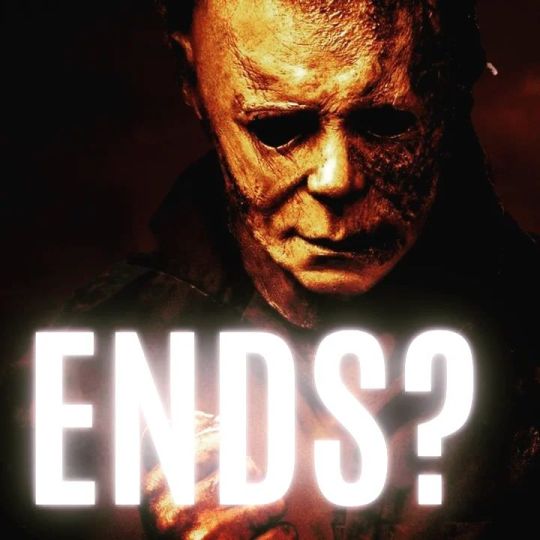
@gothcomedian and @misshannahkathrine discuss #halloweenends and all #halloweenmovies on @darkmarkshow which is on #youtube now https://youtu.be/Lk1zY6aJ1Ig #podcasting #podcast #podcaster #podcastersofinstagram #michaelmyers #halloween #halloweenII #halloweenIII #Halloween4 #Halloween5 #halloweenthecurseofmichaelmyers #halloweenh20 #halloweenresurrection #halloweenkills #filmanalysis #filmcriticism #horrormovies #🎃 (at Los Feliz) https://www.instagram.com/p/CkgWawSr-Pr/?igshid=NGJjMDIxMWI=
#halloweenends#halloweenmovies#youtube#podcasting#podcast#podcaster#podcastersofinstagram#michaelmyers#halloween#halloweenii#halloweeniii#halloween4#halloween5#halloweenthecurseofmichaelmyers#halloweenh20#halloweenresurrection#halloweenkills#filmanalysis#filmcriticism#horrormovies#🎃
1 note
·
View note
Text
Film Talk Tonight!
Don't forget about the Free Zoom Film Talk tonight, 6pm (PST)! Natives in Modern Film. Here's the link and info,
https://medium.com/@alanlechusza/dont-forget-about-the-film-talk-today-24fb9ae104ae
#native #nativeamerican #culture #film #filmcriticism #popculture
#writer#author#writerscommunity#lechusza#author life#writers on tumblr#politics#youtube#zoom#culture#film#film critic#native american
0 notes
Text
youtube
Check out the latest LOWKEY GEEK #youtube video!
NYFF: Torrential Rain Couldn't Keep Me From The Boy And The Heron + More | Film Festival Vlog
by LOWKEY GEEK!
Welcome to the vlog series that recaps my time and the films that i've seen at this year's New York Film Festival!
In this episode, I recap day 3 at the festival for me and provide my reactions to The Boy and the Heron, Evil Does Not Exist and The Beast/La Bête press screenings.
How to support the SAG-AFTRA Strike:
Entertainment Community Fund - Film & TV Workers: https://ift.tt/2rzjZxW
Entertainment Community Fund - Support Staff Relief Fund: https://ift.tt/FwSatQg
SAG-AFTRA Foundation: https://ift.tt/YNTyPvE
List of other ways to support: https://ift.tt/EqRGiXg
NEW MERCH SHOP
Proud to announce the new opening of popcouture.shop where you can find channel merch but also pop culture related merch. If you're a fan of movies, tv, video games, etc...this will be the place for you! Use the special code below to get yourself 15% OFF your entire purchase! Check out the shop for geeks who are chic!
Code: LOWKEYGEEK
Link: https://ift.tt/E6OyK4W
🔔 Consider Subscribing: https://ift.tt/fqZu8iU
🎧 Listen on Spotify: https://ift.tt/MpUwzDu
🎧 Listen on iTunes: https://ift.tt/GnwsJ5v
► The gear we use on this channel: https://amzn.to/3L79c1Y
► Get 3 months of UNLIMITED DATA for only $15/mo with Mint Mobile: https://ift.tt/CWDQ0Iq
► Bulletproof Coffee - 20% Off with code LOWKEYGEEK20: https://ift.tt/XY8FIMg
Other Great Content ----------------------------------
► Movie Review & Out of Theater Reactions: https://youtube.com/playlist?list=PLsH8u5sKE6YH2jORSfkqtudOJX2KFFJkK
► The Trailer Park: Trailer Reactions: https://youtube.com/playlist?list=PLsH8u5sKE6YETuoR2B2Y1ulc_TfFKkyGZ
► The MovieTime Podcast: https://youtube.com/playlist?list=PLsH8u5sKE6YFrFx7-xandmlAgLWoUwIhc
► The Talking Talk Podcast: https://youtube.com/playlist?list=PLsH8u5sKE6YG3kXuSkEzu2PGgnjvU70Kc
► Special Events & Travel: https://youtube.com/playlist?list=PLsH8u5sKE6YGUo9x5FHnbideFkmHV_lAM
► Japan WOW Now: https://youtube.com/playlist?list=PLsH8u5sKE6YFX48uPJl5FwipHSTGis9Qy
► LOWKEY GEEK Gaming: https://youtube.com/playlist?list=PLsH8u5sKE6YHHmgt_YpmNFEbOi0d52hic
► One-Shots: https://youtube.com/playlist?list=PLsH8u5sKE6YGDDThqnXOa9FOLYtvAjFNK
Follow Us ---------------------------------------------------
Twitter: https://twitter.com/the_lowkey_geek
Instagram: https://ift.tt/Qbx3lk0
Threads: https://ift.tt/kIxochE
Follow the Team on Letterboxd -----------------
Blake Wolf: https://ift.tt/aBYcp73
Rene A. Zelada: https://ift.tt/RDGlgEU
Chapters ---------------------------------------------------
00:00-Please leave a comment!
02:12-The Boy and the Heron Reaction
15:09-Evil Does Not Exist Reaction
21:46-La Bête/The Beast Reaction
#nyff #nyff61 #filmfestival #filmfestivals #filmatlincolncenter #movies #movie #film #cinema #vlog #vlogs #festival #festivalvlog #moviereaction #filmreaction #theboyandtheheron #evildoesnotexist #thebeast #labête #hayaomiyazaki #studioghibli #filmcriticism #filmcritique
via YouTube https://youtu.be/xVzUjVcJaQQ
0 notes
Text
0 notes
Text
Jesus Christ Superstar (1973)
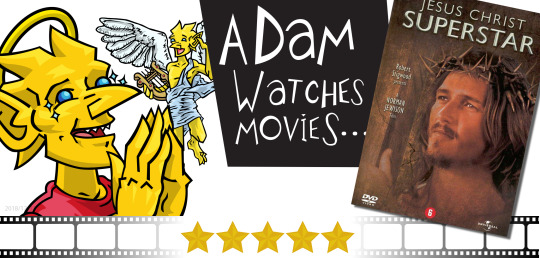
The more Jesus Christ Superstar plays back in my head, the more I recognize it as an emotional, thought-provoking, and intelligently-made film. It also features powerhouse performances from the leads, memorable scenes, and a terrific soundtrack.
Based on the musical rock opera by Andrew Lloyd Webber and Tim Rice, it’s the story of Jesus’ passion told from the viewpoint of Judas Iscariot (Carl Anderson) and focuses on the conflict between the disciple and his master leading up to the crucifixion.
Told in a quasi-meta fashion, the film begins with all of the characters, save Jesus (Ted Neeley) arriving by bus. What we see is like a retelling and a spiritual retreat for all of the participants as they act out the familiar story through song.
Certain elements left me feeling uneasy. The characters move among ruins and modern constructs built around them. Guns, tanks, and modern clothes are seen throughout. It’s as if a theatre troupe stumbled upon a script titled “Jesus Christ Superstar” and, having no idea what it was about decided to spontaneously put on a show that turned out to be a life-altering experience. They didn't have auditions, the right costumes, or even someone in mind to play Jesus (explaining why the actor's not on the bus with the rest) but once they began, the story took a life of its own. It suggests Ted Neeley isn't even an actor as much as a figure bound to the story of the passion.
This is the kind of movie that demands to be seen multiple times and discussed in length. It wants to be more than just a straightforward retelling, it aims to embody the religious experience you get hearing the biblical passages for the first time. Norman Jewison seeks to challenge the way you perceive this tale and make you rethink the roles these people play in it. As a musical, it's the perfect choice. You already want to watch the film over and over to memorize the soundtrack. Asked ten different people about their favorite number. You'll get ten different answers. More than featuring pleasant melodies and well-written lyrics, the songs are cleverly utilized. They set the tone once and then, depending on the pace, or slight tweaks in the lyrics, key numbers drastically change in their reprises.
The film you want to compare Jesus Christ Superstar to is Godspell. While the former feels dated, this interpretation is fresh despite the years. Its choices are certainly controversial but its ability to challenge the viewer is one of its strongest assets. The soundtrack is dynamic and memorable. The characters feel like more than simply names on a page read every easter. Instead, they're living, breathing people. The more I think about this movie, about how it makes me feel and how elegantly the lyrics and the music are handled, the more I fall in love with Jesus Christ Superstar. (On DVD, April 10, 2015)
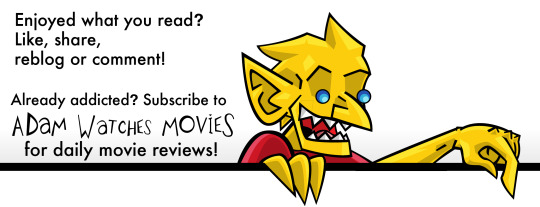
#JesusChristSuperstar#movies#films#reviews#musicals#movieReviews#FilmReviews#FilmCriticism#NormanJewison#MelvynBragg#TimRice#AndrewLloydWebber#TedNeeley#CarlAnderson#YvonneElliman#BarryDennen#1973m#1973Films
3 notes
·
View notes
Photo

The United States vs. Billie Holiday (2021)
The actors were the only ones who knew what this movie was supposed to be. If you've heard of poverty porn, this was addiction porn, like if you took the drug and sex addiction sequence in Bohemian Rhapsody and stretched it out into a 2 hour long movie. I'm so frustrated, I can barely put it into words, because this could have been a great movie if whoever wrote, shot and edited it had been even just a smidge more competent.
4/10
P.S. I was surprised to find out that this was Andra Day's acting debut, and you wouldn't know it from how she carried this whole film on her skinny shoulders (she lost almost 40 lbs to play the part). There were moments where you understood that there was more to Billie Holiday than her drug addiction, thanks to Day's acting. Ms. Holiday was fighting against racism in the whole of the US, from the fields of the deep South to the nightclubs in Harlem. Her pain seemed isolated, like an anomaly, but it was by design. Manufactured by a system that never wanted her to live, much less thrive. And the United States government did not care to be reminded about their systematic killing of black Americans. I think that's what hurts the most about how poorly the film was made. Even if the film had been edited competently, it had more gratuitous scenes showing her bruised veins and naked body, with a white knight staring at her like, "Baby, my love could fix you," that it felt more like the self-insert fanfiction of an incel than a film celebrating a civil rights activist.
Andra Day on The Daily Social Distancing Show: https://www.youtube.com/watch?v=FZmQ4WZNCJU
#hulu#the united states#the united states vs billie holiday#andra day#trevante rhodes#lee daniels#billie holiday#filmcriticism#film
17 notes
·
View notes
Video
I respect this woman as an artist and human being so very much! It’s always a good tome to chat with @anikaaroundtheworld ! Check out her latest project @netflix #MAID and tune in tonight @thecurvycritic to see this interview in full. https://youtu.be/Aw7k4n4GoFg #maid #Netflix #anikanonirose #anikanoniroseinterview #interview #entertainment #entertainmenthost #filmcriticism #filmcritic #podcast #blackpodcast https://www.instagram.com/p/CUVupBQjWtR/?utm_medium=tumblr
#maid#netflix#anikanonirose#anikanoniroseinterview#interview#entertainment#entertainmenthost#filmcriticism#filmcritic#podcast#blackpodcast
2 notes
·
View notes
Photo

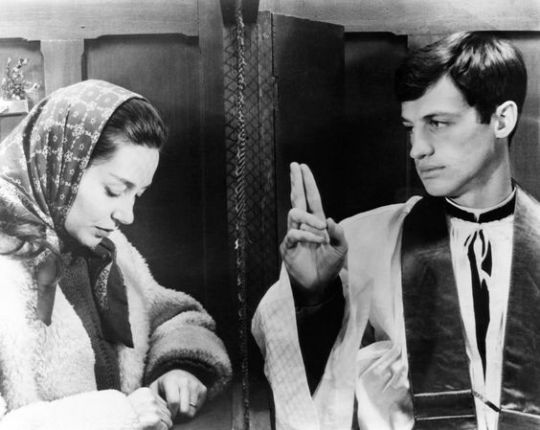
LÉON MORIN, PRÊTRE
Quelle réussite !
De tous les Melville, celui-ci restera de loin mon préféré.
Contrairement à toutes ses autres oeuvres, Léon Morin, prêtre est à part entière ; le réalisateur ayant su se détacher du superflu, du tape à l’oeil. Il nous offre donc dans ce film, une mise en scène beaucoup plus sobre que toutes celles qu’il ait pu mettre en oeuvre autrefois. L’extravagance de Melville, dont nous avions l’habitude de voir, a donc disparu ; mais ce film n’en a aucunement besoin, il se suffit à lui seul.
Une femme, athéiste, dans la quête de réveiller le semblant d’amusement qui sommeillait en elle, entre un jour dans le confessionnal d’une église, elle a pour but de raconter une farce de mauvais gout à un prêtre. Celui-ci ayant compris que la pécheresse n’étant en réalité qu’une femme troublée par la guerre, mais aussi par l’existence de dieu et les dogmes, il l’éclaira et l’incita à revenir vers lui. C’est comme ça que naquît une histoire d’amitié, de complicité, il lui prêcha la religion, le sens de la vie et sa valeur... Mais ce n’est que quelques temps après qu’elle se rendit compte de son attirance pour lui. Elle finira par lui avouer les passions qui la rongeaient, et ce dernier l’incita à venir se confesser.
Ce film est un bijou, drôle, morne, gai, Melville a su retransmettre toute l’énergie du livre en l’adaptant plus que parfaitement pour le 7eme art, un chef-d’oeuvre.
Les acteurs jouent bien, plus particulièrement Belmondo, doté d’un charisme indéniable (des prêtres comme ça on en voit pas tous les jours) et les dialogues sont extraordinaires ! Pas un seul moment de répit pour le spectateur, le film est entrainant, captivant, et d’une beauté inégalable. On y ressent l’angoisse de la guerre, la détresse d’une femme en mal d’amour, et de tendresse. C’est aussi cette solidarité humaine qui ne cesse de briller, qui est montré primaire pour l’Homme, est si touchante, émouvante, poétique... Bravo !
LEON MORIN, PRIEST
What a success!
Of all the Melvilles, this one will remain by far my favorite.
Contrary to all his other works, Léon Morin, prêtre is in its own right; the director knew how to detach himself from the superfluous, the flashy. He offers us in this film, a much more sober staging than all those he could have implemented before. Melville's extravagance, which we used to see, has disappeared; but this film does not need it at all, it is enough on its own.
A woman, an atheist, in search of awakening the semblance of fun that was slumbering in her, enters one day in the confessional of a church, her purpose is to tell a joke of bad taste to a priest. The priest understood that the sinner was in reality a woman troubled by the war, but also by the existence of God and dogmas, he enlightened her and encouraged her to return to him. That's how a story of friendship was born, of complicity, he preached religion to her, the meaning of life and its value... But it is only some time later that she realized her attraction for him. She ends up confessing to him the passions that were eating her up, and he encourages her to come and confess.
This film is a jewel, funny, dull, cheerful, Melville knew how to retransmit all the energy of the book by adapting it more than perfectly for the 7th art, a masterpiece.
The actors play well, especially Belmondo, with an undeniable charisma (priests like that are not seen every day) and the dialogues are extraordinary! Not a single moment of respite for the spectator, the film is exciting, captivating, and of an unequalled beauty. It is also this human solidarity that never ceases to shine, which is shown primary for the Man is so touching, moving, poetic ... Bravo !
#filmlover#filmreview#filmcritic#filmaddict#filmcriticism#oldmovie#jean paul belmondo#belmondo#movie critic#frenchfilm#frenchmovie#jean pierre melville#léonmorin#criterion collection
6 notes
·
View notes
Text
It’s definitely not a good time to be a nazi.
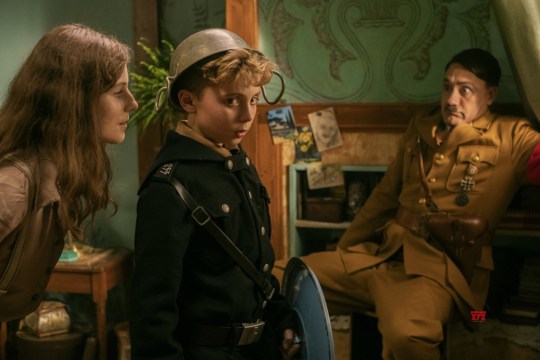
Caitlin Summerson // 23rd January 2020
Nazi Germany, Hitler youth camps, a Jew secretly living in the attic. Downstairs, a humanist single mother lives with her fanatical son, who’s imaginary friend is Adolf Hitler. This is Taika Waititi’s newest satirical dark comedy ‘Jojo Rabbit’, based on the book ‘Caging Skies’ by Christine Leunens, and it is a must see. What is surprising based on the subject matter is that it is an extremely enjoyable viewing experience, we have Waititi to thank for that. His style is striking, the colour grading, soundtrack and costume design are all beautiful, and the cast is stellar (Waititi plays Hitler himself, alongside Scarlett Johansson, Alfie Allen, Stephen Merchant, Rebel Wilson, and Roman Griffin Davis, who’s leading role in this film is his first).
Waititi manages to explore an extremely dark topic with an effortlessly light tone, he brings history into the story book realm, the atrocities of Nazi Germany are told through the eyes and experiences of a child, Hitler is placed in the innocently mischievous position of existing as a child’s imaginary friend, although certain intricacies are overlooked, the simplified version of history shown is not ignorant. Waititi and Jojo’s character bring the boundary of understanding down to the level a child could possess, this clarity works extremely well for audiences living at least two generations away from the reality of war. We are able to understand the fanaticism of the Nazi party, their skewed beliefs and race war because it is told to us as a fantastical tale of good and bad, monsters and heroes, and in true fairy-tale style, the good guys win, love conquers all, but we already know that.
The story is a comment on blind fanaticism, in believing in something that you do not fully understand, as Jojo grapples with his identity as a ‘good young Aryan boy’, a part of the Hitler youth, and simply a 10 year old boy, he is challenged by his compassionate mother who makes the dangerous decision to hide a young Jewish girl in her attic, while allowing her son to express his political views, or what he thinks they are, freely, without judgement. Her character is the voice of reason, the voice of the future, she sees past the war, committing herself only to the endeavour of being a good person, regardless of the power structures trying to stop that inherently human kindness.
Elsa: “You're not a Nazi, Jojo. You're a ten-year-old kid who likes dressing up in a funny uniform and wants to be part of a club.”
It is an untraditional love story, one of adversity, and not necessarily a romantic kind of love, rather the kind of love that only exists when everything else is lost, most importantly one we still need to treasure.
#artcriticism#filmcriticism#filmreview#film#taika waititi#jojorabbit#jojo rabbit#artschoolreviewz#artschoolreview
9 notes
·
View notes
Photo

This week on @darkmarkshow @gothcomedian and #specialguest @llfaunt discuss the #davidlynch #cultclassic #losthighway You can listen to the show now as it is available on #Spotify #applepodcasts #iHeartRadio and all #podcastcatchers now. https://audioboom.com/posts/8159567-lost-highway-with-l-faunt #podcast #podcasting #podcastersofinstagram #podcastlife #losthighway #1990s #90s #filmanalysis #filmcriticism #nineinchnails #trentreznor #billpullman #patriciaarquette #ojsimpson #garybusey #robertblake #smashingpumpkins #rammstein #flashback #retro #lynchian #surrealism (at Hollywood, California) https://www.instagram.com/p/CipxnmNLZnB/?igshid=NGJjMDIxMWI=
#specialguest#davidlynch#cultclassic#losthighway#spotify#applepodcasts#iheartradio#podcastcatchers#podcast#podcasting#podcastersofinstagram#podcastlife#1990s#90s#filmanalysis#filmcriticism#nineinchnails#trentreznor#billpullman#patriciaarquette#ojsimpson#garybusey#robertblake#smashingpumpkins#rammstein#flashback#retro#lynchian#surrealism
0 notes
Photo
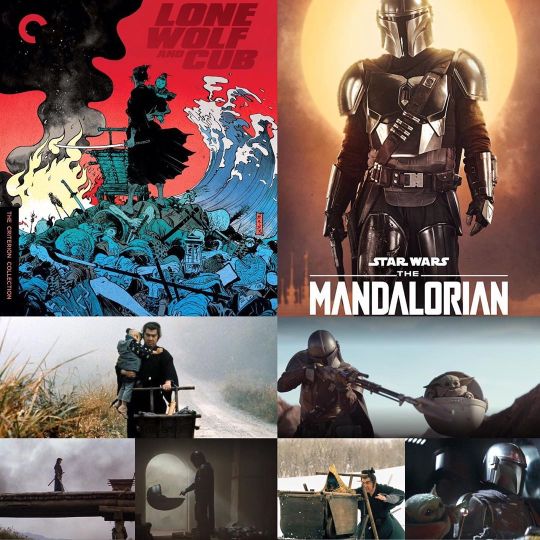
Samurai Cinema is in #starwars DNA- Kurosawa influence is all over the original film, as well as the animated #clonewars series. It is appropriate, then, that the first live-action series from the franchise, #themandalorian, is loaded up with samurai inspiration, also. In this case, season one, with the titular bounty hunter and his young companion, The Child (aka #babyyoda), has clear roots to the 1970s franchise, #lonewolfandcub. I’ve been watching the six-film manga adaptation via its #criterioncollection box set, and it is a highly enjoyable piece of action filmmaking. It lacks the depth of Kurosawa’s work, but as Itto Ogami and his son, Daigogo, go on their trek through Japan, battling fighters in imaginative and brutal fashion, one cannot help but smile as the series gets pulpier, more bloodthirsty, and wilder as Lone Wolf and Cub, as they become known, walk a lonely path. I’m so grateful “The Mandalorian” finally got me to watch this. #filmcriticism #films #samuraifilms https://www.instagram.com/p/B97xN1wprs-/?igshid=omoz12r7h7x1
#starwars#clonewars#themandalorian#babyyoda#lonewolfandcub#criterioncollection#filmcriticism#films#samuraifilms
1 note
·
View note
Text
Palo Alto: April and Teddy (the only realistic high school couple)
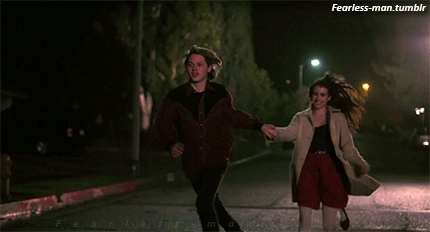
When viewing this film, most could write it off as lacking plot or not being exciting enough, but for a teenager living in the world today, it provides a reassuring feeling in the department of high school love. Throughout the movie, Teddy and April have few short interactions: the longest being when they leave a party to go hang out in a graveyard. There conversations are awkward. There is no instant obvious connection. No grand gestures. And yet, you are completely enthralled in their skinny love the whole movie. Being seventeen and realizing high school is nothing like the teenage rom coms I cherished in middle school brought on my first adolescent heartbreak, but this film helps to highlight the small gestures we get excited about in high school today. At the end of the film, Teddy tells April he loves her and staying with the mood, there is no big kiss scene and then the credits. Instead they leave the party they are at so April can watch Teddy skateboard. By the end of the night April and Teddy have been pulled apart by their friends, Teddy is walking home and looking at his phone, and April is sitting on her front porch when her phone buzzes and they both smile. It never shows what was said, but from that small act it instills in the viewer a hope for them to get together. Sometimes getting excited about someone texting you can be brought down by thinking of the grand gestures that happen in most high school movies. Palo Alto introduces the idea of romanticizing the innocent and timid actions of love in today’s society. Instead of judging that aspect of modern day relationships, this film shows teenagers that most times the grand gesture is not there, but the casual, awkward, subtle, way real high schoolers find love can actually be romanticized too.
#paloalto#emma roberts#jack kilmer#james franco#gia coppola#teddymorrison#aprilandteddy#film#criticism#film critique#filmcritc#filmcriticism#filmstudies#review#movie review#movie#feminist#love#teenagerlove#teenagermovie#art#edgy#skater#mid90s#nat wolff#zoe levin#young#teeenage#imnotbob#teen films
40 notes
·
View notes